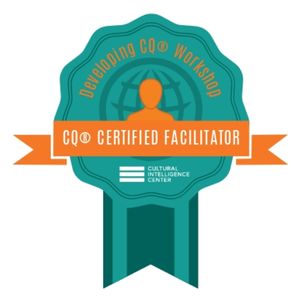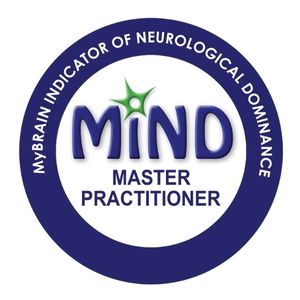I’m Victoria Rennoldson, Communication and Culture Coach.
Welcome to Wednesday Words, my weekly vlog, with more communication skills and cultural strategies for you to learn.
Today, I am going to be talking about why it is important to establish your communication goals.
You can watch the video above, or listen to the audio only version, by clicking below, or read the blog:
Let’s start with some questions!
Do you have a clear view of how you are getting on with your communication today?
Do you understand how communication fits into the bigger picture of your current performance, your next role, and even your ultimate career ambitions?
Like any performance-related activity – whether that’s to do with work, fitness or self-development – setting goals is essential. Why? Having a goal is like having a compass: we understand where we’re heading, and we can focus our energy and effort in an efficient way to ensure we are developing in the quickest way possible.
It’s exactly the same with our communication. We want to understand how our communication fits into our work and career so that we can really make a difference in our workplace. By developing the skills that we need, we can become more effective in our work.
Today, I will be focusing on why setting communication goals is so valuable, and on how to go about doing that in a way that aligns with your other self-development activities.
Here are my 6 recommendations for how to clarify and work towards your communication goals:
- Start with your ‘why’ Before you set any goals, you need to understand this: why is it that you want to improve your communication skills? What is it going to enable you to do that you currently can’t do or find challenging? How is this going to help you in your current role? What kind of results and improvements are you hoping for? Also ask yourself: how is it going to help me in the next stage of my career? Whether that be a promotion or a new role – how is being a more effective communicator going to help me? And then finally, I want you to think about this: what is your ultimate career ambition? What does that look like? And what type of communicator would you need to be in order to reach that end goal? If you’re somebody who’s running your own business, then these questions also apply to you. Think about what it is you need to communicate today and how your communication could help you to grow your business to its maximum potential.
- Visualise your success Think about your ideal situation, where you’re communicating in flow, exactly the way that you want to. And I want you to visualise it in detail. Imagine the physical space where you’re sitting or standing and imagine what you’re wearing, how you are feeling, your facial expressions and how your voice sounds. I also want you to imagine the other people in the room and how they’re listening to what you have to say. Imagine how they’re responding and what they say, perhaps when they approach you afterwards. This type of positive visualisation can be incredibly powerful, especially where you’re imagining lots of positive experiences, feelings and images. It can be a great motivator towards achieving your end goal. So I encourage you to spend some time on this, either thinking about it or writing it down. What does your ideal outcome look like?
- Focus on today’s picture Now, this is important, because we need to understand where we are now and how we’re going to get to our end goal. What is our current situation with our communication skills? Feedback is incredibly important in this process, so I do encourage you to ask a trusted colleague or friend for feedback on your communication – ideally somebody who has experienced you in different situations. Ask them some simple questions, such as: what am I doing well today and how could I improve? Because this will help you to build up a picture of how you are communicating now and then identify those areas you need to work on. You could also do some self-reflection; if you’re very self-aware, or have had feedback in the past, you may be able to identify today’s picture. But please bear in mind that it can be hard to build an objective picture of your own communication skills because many people are overly critical of themselves. This is something I’ve seen with my clients. If you haven’t got anybody you can ask for feedback, then please come and ask me! I’m always very happy to help.
- Celebrate your journey Developing your communication skills, as with any other skills, is a journey. It doesn’t happen overnight and might take weeks, months or even years, depending on how big your goal is. So I do encourage you to celebrate your progress and your wins along the way. For example, let’s say you lead a presentation or meeting, and it didn’t go exactly as you wanted. What matters is that you celebrate what did go well and what you have already improved on. It is important to acknowledge your progress, and how you’re moving from today’s picture towards your ultimate goal.
- Capture your learnings When you’re listening to feedback and self-reflecting, I invite you to focus on how you can keep improving and moving towards the goals you have set for yourself. So after an important meeting or presentation, remember to capture, very simply, what worked well and what you would do differently next time. Or go back to the people who gave you feedback at the beginning to establish today’s picture. This can be very helpful, as they can see how you are progressing over time. You want to make sure that, like a ship, you’re moving forwards, readjusting, getting back on track, and focusing on where you need to improve.
- Get the support you need If you’re feeling like you need a bit more clarity and support in this area, or you would like to get some personal feedback on your communication from an experienced professional, then please get in touch with me. I can also help you establish your goals and your roadmap to communication success!
Quick summary:
Today, we have looked at why it is important to set yourself goals on your journey to confident communication. Here are the six recommendations that I have talked you through today, to help you establish goals that are meaningful and useful to you.
– Start with your why
– Visualise your success
– Focus on today’s picture
– Celebrate your journey
– Capture your learnings
– Get the support you need
If this is an area where you feel you need some extra support to receive feedback, establish your goals and help you on your communication journey, then please book in a discovery call with me.
Thank you so much for joining me today for Wednesday Words. I look forward to seeing you next time.
You might also like reading:




